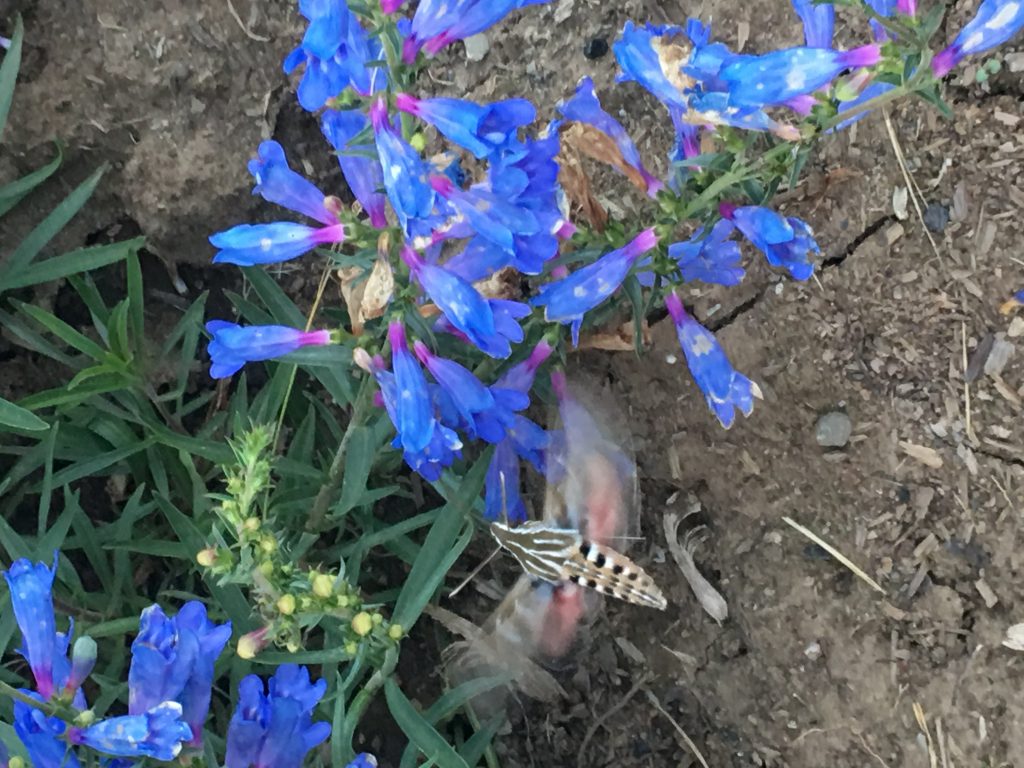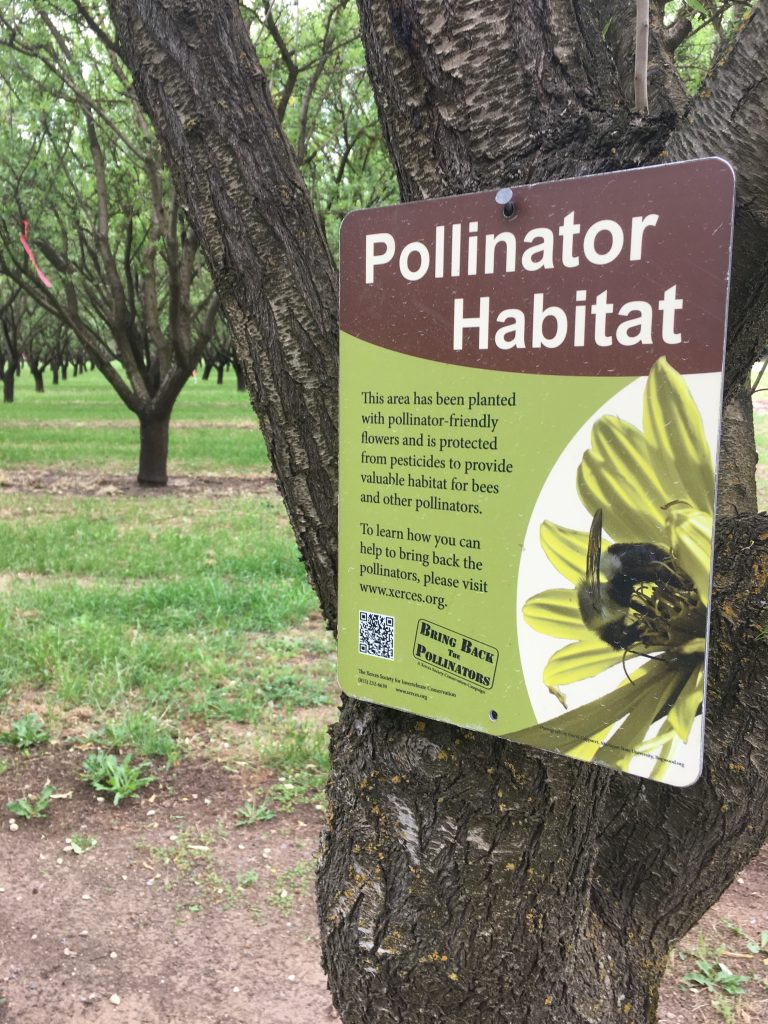What’s all the buzz about?
Pollinators move pollen from one plant to another, as they feed upon the flower nectar, enabling the plants’ reproduction and seed viability. Insect pollinators are necessary for over 30% of our food crops grown on todays farms. There are many types of native pollinating bees and other insects as well as imported pollinators such as the European honey bee. Though often overlooked and under appreciated, the native insects usually make the best pollinators because they are adapted to local climates and can pollinate in colder and wetter conditions than imported bees can. Native pollinators also can pollinate more species of native plants, than honeybees can. Unfortunately, many important native pollinators are threatened by todays conventional farming techniques. These include a lack of food source and habitat due to mono cropping and poison from chemical sprays and residues.
When large areas of land are planted to only one kind of crop, pollinators and other beneficials have a hard time finding enough food to eat, because the diverse, native vegetation they need has been removed. In turn, pests of the mono crop literally have a “field day”, resulting in farmers using even more chemicals to try to control them. As bees and other important insects are rapidly disappearing, there is a push for farmers to plant hedges of native plants around their fields to provide habitat and food for the beneficial insects. There is also increasing awareness about the chemicals used, and the importance for consumers to purchase organic foods instead, encouraging more farmers to kick the chemical habits and go organic. This helps create more balanced farm ecosystems which are more in tune with nature, and better adapted to pollinating crops and controlling pests naturally.
Update 11/2017: New studies are finding alarming data about flying insects worldwide; a 75% decline in populations, which leads some scientists to call it an “Ecological Armageddon”. Insects, especially flying ones, are a vital, beautiful part of the natural world. We’re talking about the entire basis for the food chain, not just 30% of the crops we grow that need direct pollination. Without insects, life on our planet is incomprehensible. The time is now for us all to do something about it! What can we do? STOP buying and using chemical herbicides and insecticides around your houses, gardens, and businesses. Do not support chemical manufacturers who keep pushing the products that kill our insect life and contaminate our water supply. Urge your city, county, and state officials to quit using those products along our roads, parks, and open spaces. Talk to farmers, landscapers, nurseries, and businesses, let them know the facts, and that it matters to you. Plant native flowers everywhere! Teach others about alternatives to, and the consequences of using chemicals. Support small, organic family farms and legislation that will protect and enhance biodiversity. Watch documentaries about food production, factory farming, and the chemical warfare against insects. Listen to the scientists who are telling us that chemicals are killing us and the wildlife. Do not listen to those who say “This is just the way things are, there’s nothing anyone can do to change it.” The people who say that are the ones who have a vested interest in things staying the way they are.
“Be the change you want to see in the world.” -Gandhi
White-lined Sphinx Moth (aka Hummingbird Moth). Hyles lineata, a key pollinator, visiting a native penstemon on our farm 4/28/17

